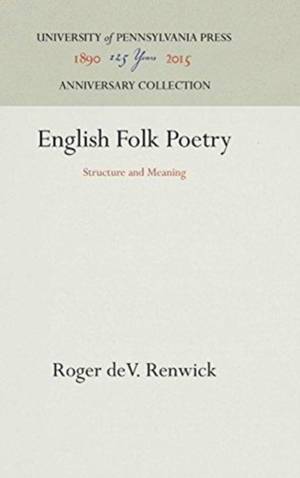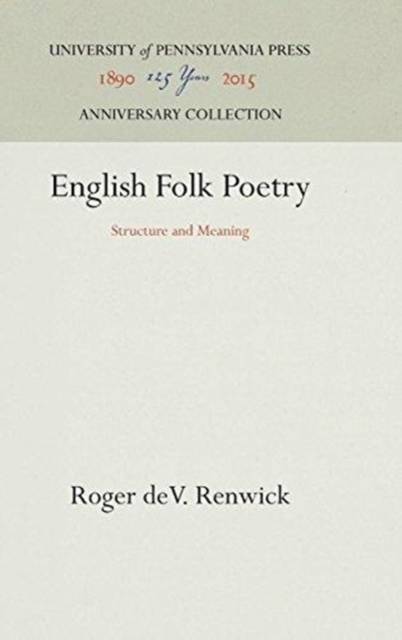
- Retrait gratuit dans votre magasin Club
- 7.000.000 titres dans notre catalogue
- Payer en toute sécurité
- Toujours un magasin près de chez vous
- Retrait gratuit dans votre magasin Club
- 7.000.0000 titres dans notre catalogue
- Payer en toute sécurité
- Toujours un magasin près de chez vous
Description
Drawing on the long tradition of folklore study, Roger deV. Renwick examines three genres: traditional English folksongs, local songs of regional interest, and working-class poetry. In the span of time that extends from the eighteenth to the twentieth century, he finds govern world views underlying a large sampling of poems related by common language, imagery, or topic, and then shows how these world views relate to the everyday lives and beliefs of the poetry's makers and users. There is, in addition, a pattern of historical continuity that links the rural folksongs of the eighteenth century with the part-rural, part-urban local songs of the nineteenth and twentieth centuries, and with the fully urban working-class poetry of the present day.
English Folk Poetry is an immensely important contribution to folklore scholarship in its examination of contemporary working-class poetry, in its approach to questions of tacit meaning, and in its exploration of the relationship of inferential meanings to real, everyday lives.
Spécifications
Parties prenantes
- Auteur(s) :
- Editeur:
Contenu
- Nombre de pages :
- 276
- Langue:
- Anglais
- Collection :
Caractéristiques
- EAN:
- 9780812277777
- Date de parution :
- 29-07-80
- Format:
- Livre relié
- Format numérique:
- Genaaid
- Dimensions :
- 152 mm x 229 mm
- Poids :
- 580 g

Les avis
Nous publions uniquement les avis qui respectent les conditions requises. Consultez nos conditions pour les avis.






